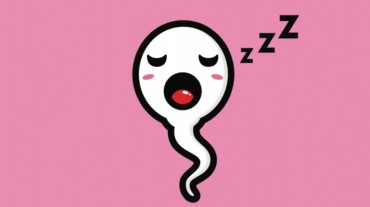
As women, we go through several ups and downs in our lives (so do men). But we are often subjected to various kinds of labels that wear us down, more so when it comes to sex. “Oh, she has too much sex” – she really has no character, or “the couple doesn’t have children” – it’s definitely the woman. No wonder, women refrain themselves from discussing anything related to their sexual health, which let’s just say, is a real problem. Moreover, even if they face issues, they turn to unverified sources online, which only makes their case worse.
Having discussed this, we want to broach upon the subject of infertility today. How many times have you heard people sharing this ‘golden advice’ – have children soon, or you will get infertile (or less fertile) with age. Is it true? Well, before we delve deeper into the details, let’s get to know what infertility really is.

If a woman has been trying to conceive but she has been unable to, even after a year or more of trying (or has suffered multiple miscarriages), she is deemed infertile. However, there’s nothing to worry about, because there are multiple treatments available today that ensure a healthy pregnancy.
Let’s touch upon the subject of fertility. To begin with, it’s not only the woman’s problem; neither is it linked to age. “It is important to understand that it’s not just women who face this issue. It can affect others too, and no, it has nothing to do with age. Also, when you come to the conclusion that a couple is infertile or is having issues in conceiving, both the partners are tested. It isn’t a given that there are issues with the woman,” Sandhya Mani, a Chennai-based gynecologist, shared with HealthShots.
“There’s no one reason for infertility, but menstrual issues could be the primary reason for this condition in women. Hormonal fluctuations are also pretty common among women, which could also be another cause. Several other issues like endometriosis or fibroids could also hinder the process. It’s always best to consult a specialist and find out the cause,” adds Mani.

Of course, not leading a healthy lifestyle is also one of the biggest causes that has increased infertility issues among both men and women.
Also, read: Chlamydia is a leading cause of infertility in women. Here’s what causes it
“Yes, fertility does reduce post the age of 35, which is why you can always freeze your eggs beforehand, if you are planning to conceive. Apart from that, being overweight or underweight, and indulging in excessive smoking or drinking can also cause fertility issues,” she says, adding that certain medical procedures like chemotherapy and some medications can also be one of the causes.
Also, read: Do you face insensitive comments about infertility? Here’s how to handle the situation
Make sure to visit a qualified gynecologist, who can go through your medical and fertility history. Next, a transvaginal ultrasound can also be done to know if anything is wrong in the uterus or surrounding areas. Certain hormonal levels are also measured to assess the fluctuations. Hysterosalpingogram (HSG) is a test that assesses fallopian tubal potency.
Select Topics of your interest and let us customize your feed.
PERSONALISE NOW
Yes, just like everything else, infertility issues can be tackled in the right manner.
Get Latest Updates on Preventive Care, Family Care, Reproductive Care, Self Care